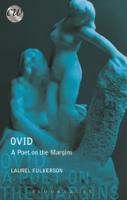
Bloomsbury (2016) p/b 117pp £14.99 (ISBN 9781472531346)
As F. points out in this insightful and lively book, Ovid has been viewed very differently over the centuries. When I was a schoolboy in the fifties, he was regarded as trivial and superficial, and I was extremely fortunate to go up to a Cambridge in which E.J. Kenney and L.P. Wilkinson were rebranding him as a great poet. The ways in which he has been viewed over the sixty-odd years since then have been many and various but the key common factor is that this frequently playful poet is now always taken seriously.
F. has undertaken a formidable task in aiming to give a coherent picture of a highly productive poet. She is helped by the fact that his poems are constantly undermining themselves with their kaleidoscopic shifts, and thus it would be simply misleading to come to definitive conclusions. Walking through Ovid’s poetry is like visiting a hall of mirrors. Even so, there is much that can be said, and F. says a remarkable amount of it. She sees Ovid as the poet of the displaced, the wanderer and the exile, ‘a poet on the margins’ in fact. When he was banished to Tomi, his poetry did not necessarily change all that much. For one thing his appeals to the emperor to be allowed to return recall those of the excluded lover pleading to be admitted in the love poetry: Augustus becomes the puella.
F. is alert to the contradictions faced by readers of this multi-faceted poet, e.g. ‘the ruthless exploiter of women who nonetheless depicts them with remarkable sensitivity’. How should one react to the fact that ‘many Ovidian narrators have an easy habit of misogyny … among other unpalatable characteristics’? She rightly finds an element of creepiness in the Pygmalion story. One could go on for a long time. F. is brilliant at asking the right questions which stimulate thought rather than lead to easy answers.
The book is delightfully illustrated with Ovid-inspired artworks; it lists good material for further reading and has a helpful glossary of proper names and Latin terms. The fact that she has not been allowed to quote in Latin means—inevitably—that Ovid’s dazzling wit and stunning verbal dexterity are done less than justice. But all in all this is a splendid introduction to one of the world’s great poets.
James Morwood—Wadham College, Oxford
